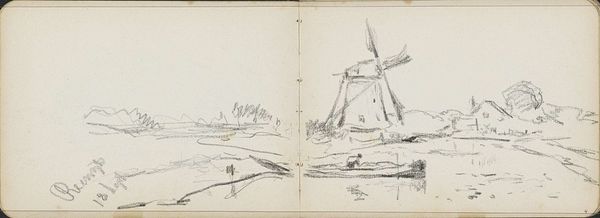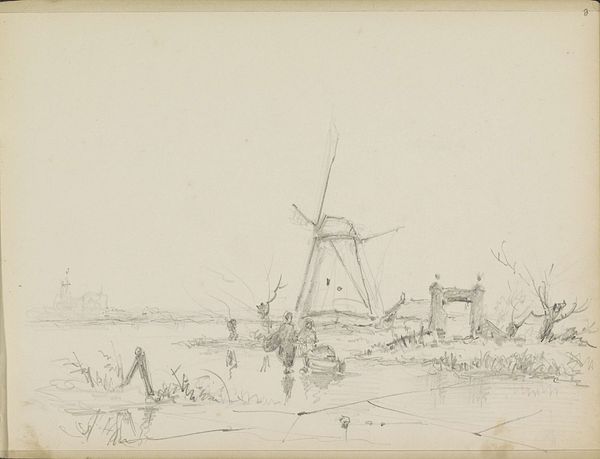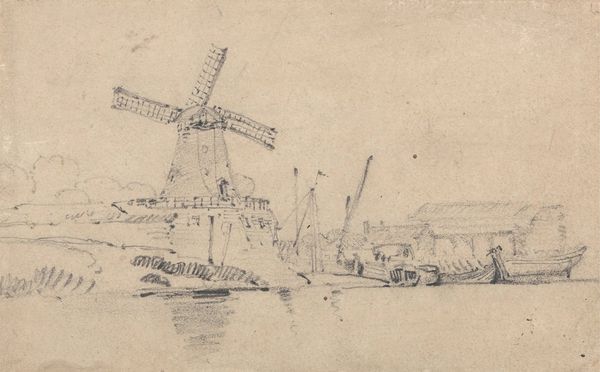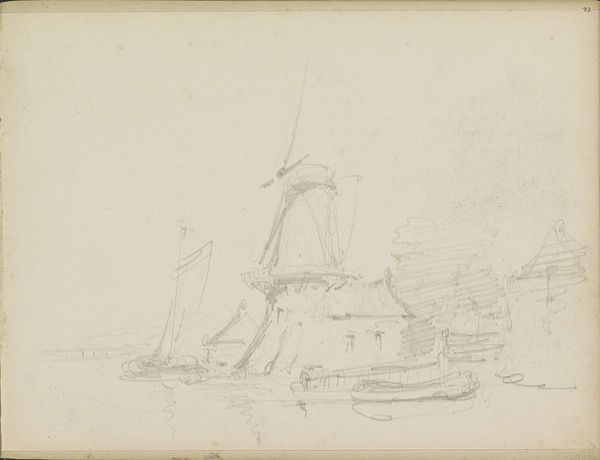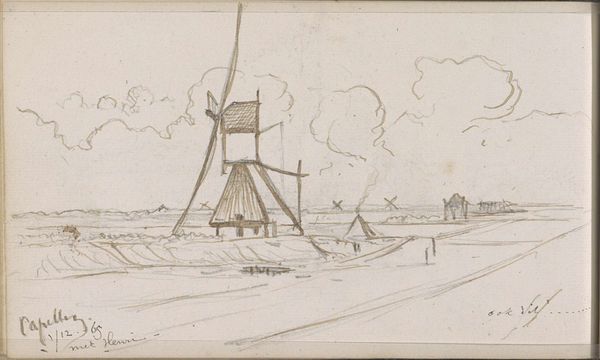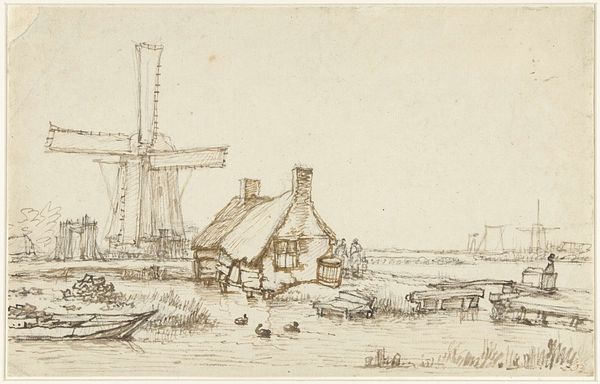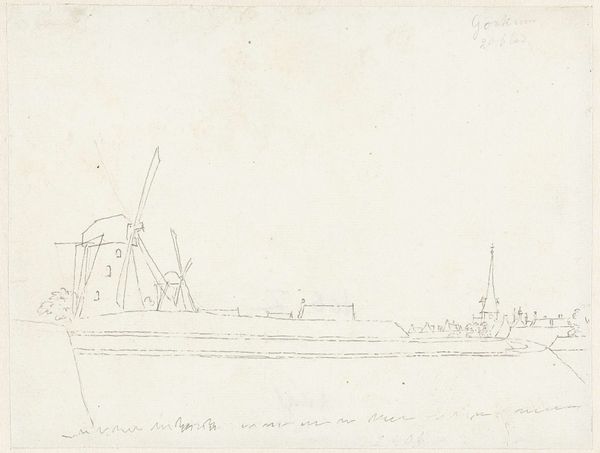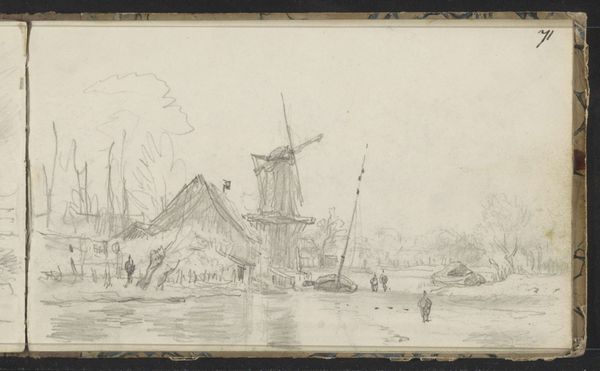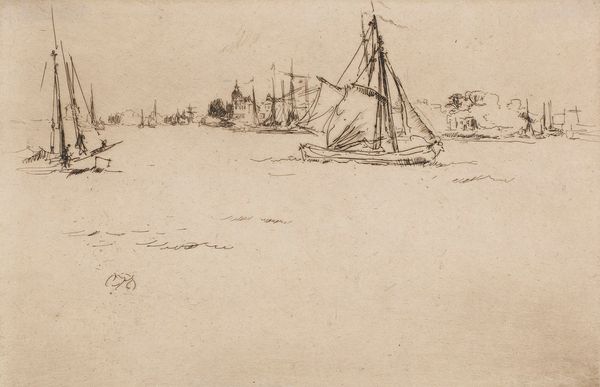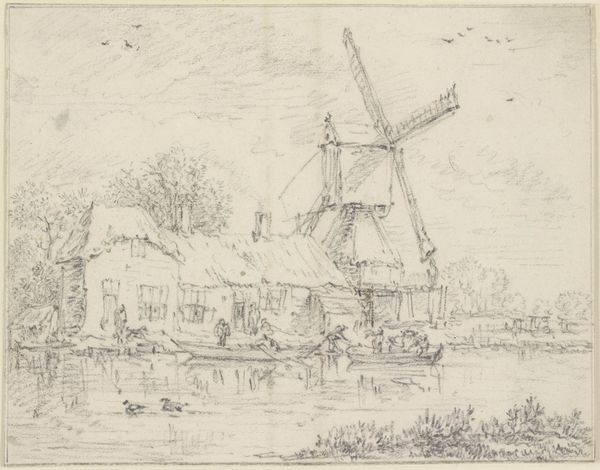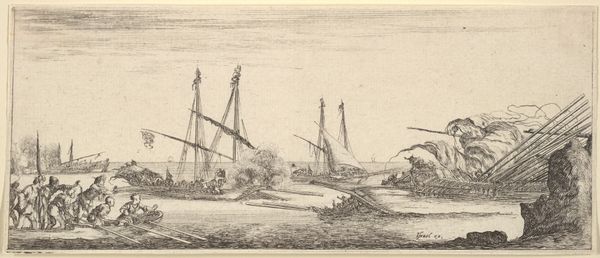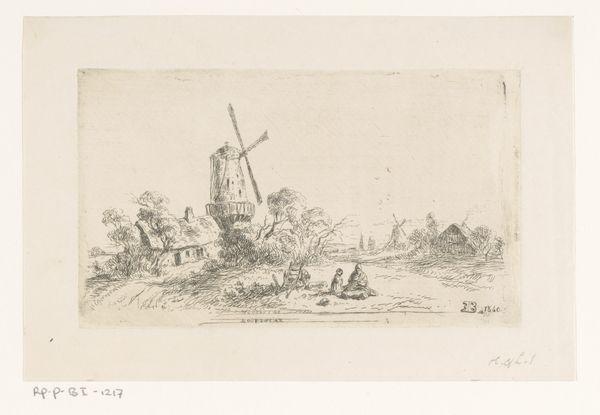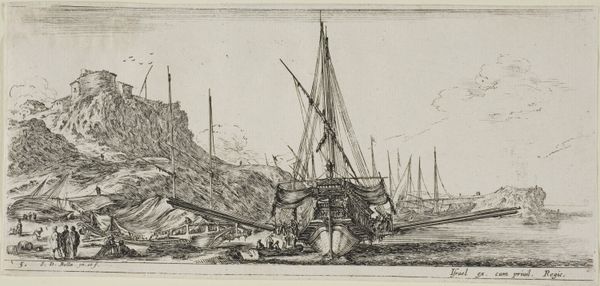
drawing, pencil
#
drawing
#
quirky sketch
#
dutch-golden-age
#
pen sketch
#
sketch book
#
landscape
#
figuration
#
personal sketchbook
#
sketchwork
#
romanticism
#
pen-ink sketch
#
pencil
#
line
#
pen work
#
sketchbook drawing
#
storyboard and sketchbook work
#
sketchbook art
#
realism
Copyright: Rijks Museum: Open Domain
Arnoldus Johannes Eymer created this sketch of a waterside windmill in the 19th century. The windmill, prominently featured, is a powerful symbol of human ingenuity, harnessing nature’s forces. Windmills have ancient roots, from Persia to Europe, initially for grinding grains, now appearing in various forms throughout different cultures, and often as metaphors for progress. But there’s more to it: the repetitive, circular motion of the sails, eternally turning, speaks to time’s relentless march and the cycles of life, which may be both comforting and melancholy. The psychological allure of windmills lies in their blend of promise and warning. These structures, like Icarus's wings, illustrate our ambition to control nature, yet also suggest our vulnerabilities. They evoke a powerful, almost primal response, resonating with deep-seated feelings about our place in the world. This landscape transcends a mere portrayal of a mill; it mirrors our ongoing dialogue with progress, tradition, and the ever-changing landscape of the human condition.
Comments
No comments
Be the first to comment and join the conversation on the ultimate creative platform.
